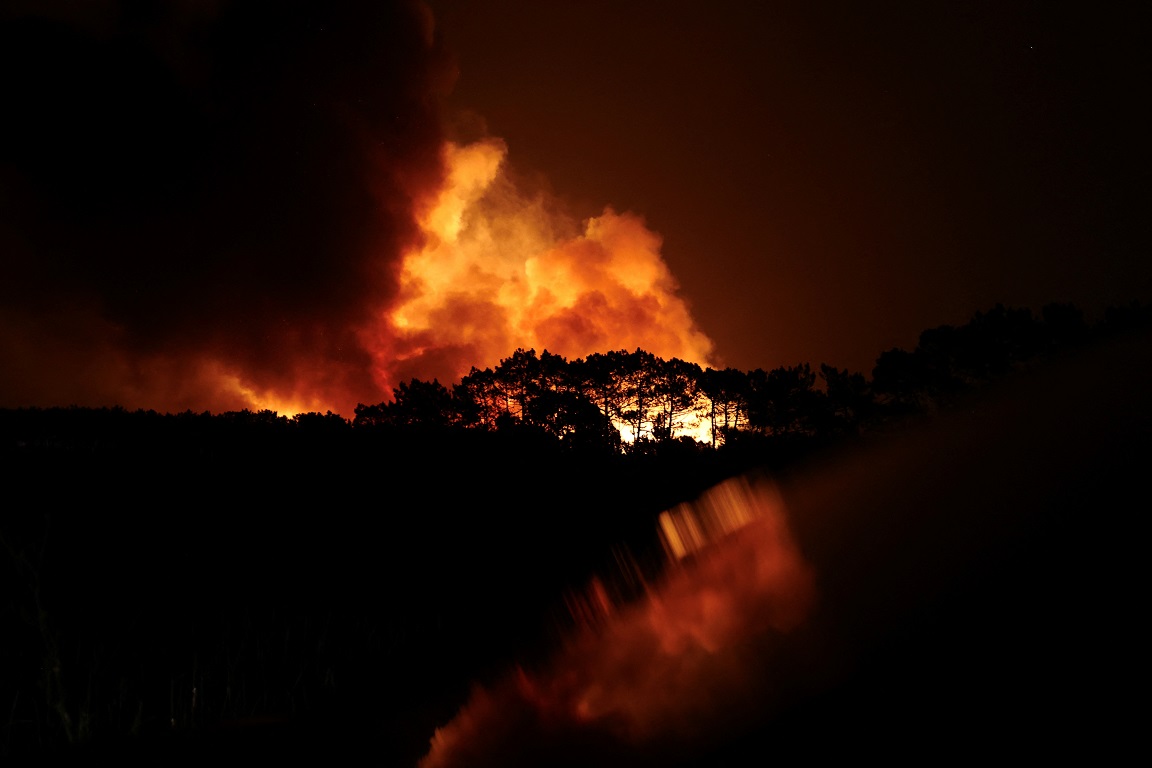11 Dec 2024

Tired Earth
By The Editorial Board

Kris Peeters is Vice-president of the European Investment Bank (EIB), responsible for Security and Defence.
We have seen threats to European and global security mounting in recent years.
In this context, however, one threat is too often overlooked: the capacity of climate change to disrupt peace – both within and between states – is real and growing.
The wildfire that damaged a Greek air force ammunition depot this month is just one example of how our militaries have to operate in an increasingly hostile environment due to climate change.
Extreme weather events, rising temperatures and sea levels, desertification, water scarcity, uncontrollable fires, prolonged droughts, and the loss of biodiversity that they entail, threaten our planet’s ability to sustain humanity. In turn, this is likely to increase competition for land, water, food, and natural resources, and may lead to conflict, mass displacement, social unrest and instability.
A number of these trends are already underway. The UN estimates that since 2008 an average of 21.5 million people per year have been forcibly displaced by weather-related events, such as floods and heatwaves. And in a recent communication, the EU also considers that climate change and environmental degradation “pose a clear and increasing risk to international peace and security”.
How can Europe respond to these challenges?
First, we have to tackle the root of the problem. We need to step up our fight against climate change and environmental degradation by decarbonising our economies and protecting natural habitats. And we must do this in a way that creates new opportunities for those who bear the heaviest burden of change.
Beyond trying to limit climate change, we also need to prepare our infrastructure and societies to adapt to the impact of those changes that can no longer be avoided. A warming planet is a more hostile planet and public institutions, governments, and the financial industry have a duty to take this into account when making policy and investment decisions. The European Commission and the EU External Action Service call for climate and environmental considerations to play a larger role in policy and planning.
Next to this, enhanced climate adaptation and mitigation measures should also play a central role in the development of member states’ civilian and military capabilities; our security and defence forces need to be prepared for the challenges posed by climate change. This means not only that they’ll have to operate under more severe climate conditions, but also that they must try to reduce their greenhouse gas emissions – without diminishing their operational effectiveness.
The European Investment Bank Group is already doing what it can to support these objectives. Under the Strategic European Security Initiative (SESI), launched in 2022, we pledged to finance €6 billion worth of projects in Europe’s defence and security sector by 2027.
Now, we are increasing this ambition to up to €8 billion, to be invested in research and development of so-called dual-use technologies with both military and civilian applications.
This includes for example satellites, data- and cyber security, but also transport networks and security measures for power plants. Space technology can play an important civil role in monitoring security threats stemming from climate change.
Next to this, a lot can be gained by further “greening” the defence sector. Since operational capability is the priority for any defence force, energy efficiency and the use of renewable energy have historically been secondary considerations.
The European Investment Bank can support any eligible “green security” project, as long as it is aligned with our Climate Bank Roadmap, and also benefits the civilian sector.
In the current, rapidly evolving climate and security situation for Europe and the world, this is all the more urgent. A climatically unstable world is unsafe for everybody. Also because in a politically and militarily unstable world, climate action may not be a priority.
By making sure that policy and financing work together, we can transform this negative spiral into a positive one, where defence also focuses on safeguarding the planet, and effective, impactful climate action contributes to cooperation, conflict resolution and peace.
Source : euractiv.com
Comment